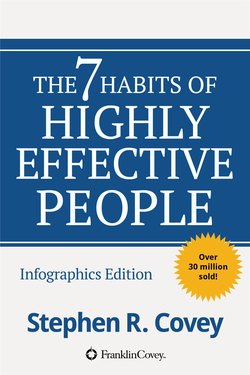Читать книгу The 7 Habits of Highly Effective People - Стивен Кови - Страница 34
На сайте Литреса книга снята с продажи.
Оглавление“HABITS” DEFINED
For our purposes, we will define a habit as the intersection of knowledge, skill, and desire.
Knowledge is the theoretical paradigm, the what to do and the why. Skill is the how to do. And desire is the motivation, the want to do. In order to make something a habit in our lives, we have to have all three.
I may be ineffective in my interactions with my work associates, my spouse, or my children because I constantly tell them what I think, but I never really listen to them. Unless I search out correct principles of human interaction, I may not even know I need to listen.
Even if I do know that in order to interact effectively with others I really need to listen to them, I may not have the skill. I may not know how to really listen deeply to another human being.
But knowing I need to listen and knowing how to listen is not enough. Unless I want to listen, unless I have the desire, it won’t be a habit in my life. Creating a habit requires work in all three dimensions.
The being/seeing change is an upward process—being changing seeing, which in turn changes being, and so forth, as we move in an upward spiral of growth. By working on knowledge, skill, and desire, we can break through to new levels of personal and interpersonal effectiveness as we break with old paradigms that may have been a source of pseudo-security for years.
It’s sometimes a painful process. It’s a change that has to be motivated by a higher purpose, by the willingness to subordinate what you think you want now for what you want later. But this process produces happiness, “the object and design of our existence.” Happiness can be defined, in part at least, as the fruit of the desire and ability to sacrifice what we want now for what we want eventually.
